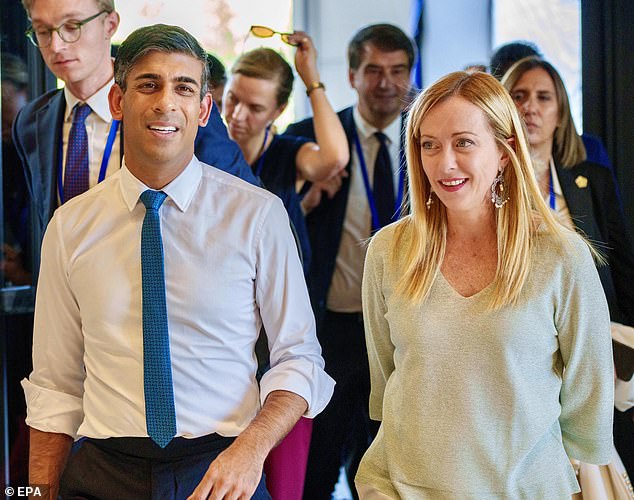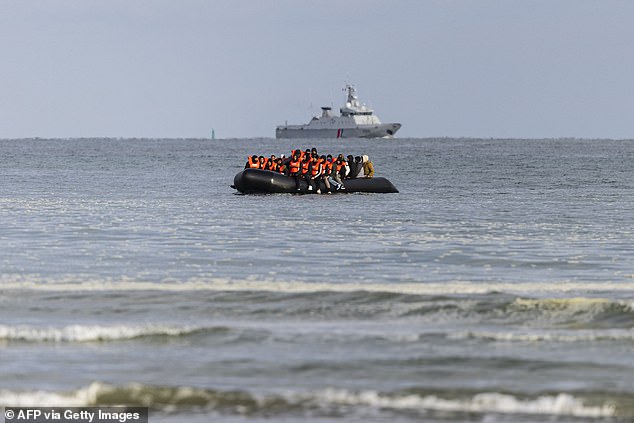NINETEEN EU countries are demanding the right to introduce Rwanda-style deportation programmes, amid signs that Britain’s new law is already having a deterrent effect
The EU is facing demands from many member states for the right to implement Rwanda-style deportation programs.
The Czech and Italian prime ministers are leading a group of 19 members asking Brussels to let them transfer migration procedures outside the bloc’s territory.
British government sources said the move showed that “the fundamentals of our plan make sense for people around the world.”
The news comes amid signs that Rwanda’s policy is already having a deterrent effect, even though the first flights have yet to take off.
Ireland has complained that migrants are crossing the border to avoid being deported to the African state, while one arrival across the Channel last week claimed they were paid £500 to be smuggled back to France.
Migrants are landed on the Italian island of Lampedusa

The proposals are likely to be considered by the EU Commission after the European elections

Italian Prime Minister Georgia Meloni pictured with Rishi Sunak last year
Denmark is also among EU countries to send a letter to the commission saying it supports the transfer of migrants picked up at sea to countries outside the EU.
The proposals are likely to be considered by the executive after the European elections.
At a joint press conference with Italian Prime Minister Georgia Meloni, Czech Prime Minister Petr Fiala said yesterday: ‘The Czech Republic and Italy are among the countries that want to go beyond where the migration pact has taken us and find a real solution to illegal migration, which we do not yet have in Europe.’
A UK government source told MailOnline: ‘As governments around the world face the global challenge of mass migration, they are increasingly looking to solutions similar to those introduced by this government.
“The basic tenets of our plan make sense to people around the world, but not to the Labor Party here, who think that dropping Rwanda and just renaming a unit already set up by the Prime Minister and actively tackling criminal human smuggling gangs is sufficient.’
The High Court in Belfast ruled yesterday that the immigration law underlying the Rwanda plan cannot be applied in Northern Ireland because it is subject to EU human rights rules.
Camille Le Coz, an expert from the Migration Policy Institute Europe, said there were “many questions” about Rwandan arrangements that would work in the EU.
Under the bloc’s laws, immigrants can only be sent to a foreign country where they could have sought asylum, provided they have sufficient ties to that country.
EU ministers meeting in Brussels will give their formal approval to the new migration policy this week, after the European Parliament approved it last month.
The proposals tighten border procedures and force all member states to share responsibility for arrivals.

Migrants who left France last month to cross the Channel to Britain
